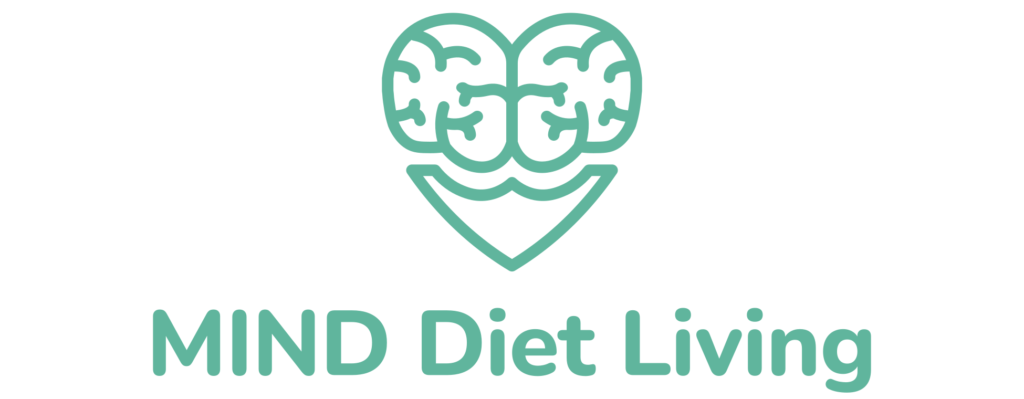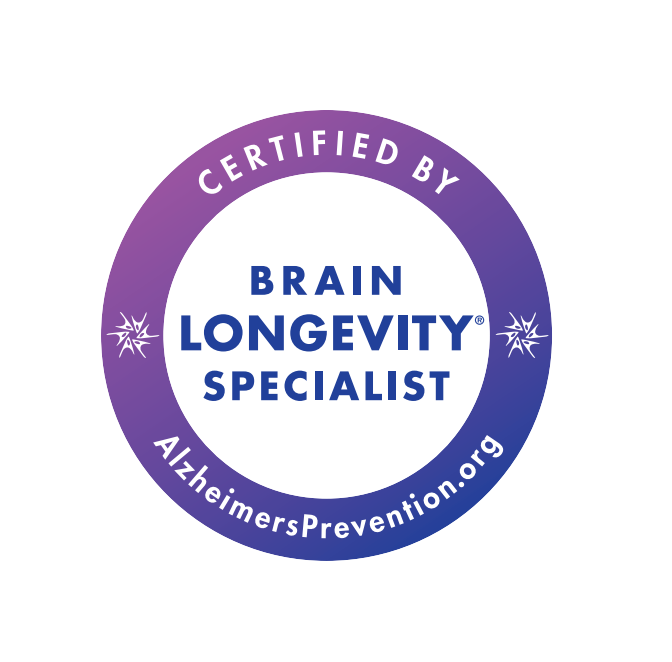Got a question about the MIND Diet, Alzheimer’s/dementia prevention, or brain-healthy living in general? See if I’ve answered it here. If not, please send me an email or leave a comment below and I’ll find you an answer!

MIND Diet
How do we know the MIND Diet is effective at preventing Alzheimer’s Disease?
Two major studies on the MIND Diet have been released in the past decade: one in 2015 and one in 2023. The 2015 study showed that close adherence to the MIND Diet reduced the risk of developing Alzheimer’s by 53%. Study participants who only sometimes followed the MIND Diet had a 35% reduction in risk. These reductions in risk from the MIND Diet were independent of other lifestyle factors.
The 2023 study looked at both the MIND Diet and the Mediterranean diet. This study also found a decreased risk in developing Alzheimer’s when participants followed either dietary pattern. This study analyzed participants’ brains at autopsy for changes associated with Alzheimer’s Disease. Researchers were also able to tease out further information regarding the impact of a person’s diet on their brain:
- Foods high in sugar or saturated fat were associated with more tau protein tangles in the brain, which are toxic proteins associated with numerous neurological disorders.
- Study participants who only added one vegetable or leafy green to their overall diet benefited from four years of brain longevity over time, showing that small changes can make a big difference.
- Leafy greens were found to be the most powerful brain-healthy food group; berries and whole grains were also shown to be very effective at reducing Alzheimer’s risk.
What is the difference between the MIND Diet and Mediterranean diet?
The Mediterranean diet is an eating pattern inspired by the food habits of people who live in Mediterranean countries. We have come to know the Mediterranean diet as general recommendations to eat a lot of fruit and vegetables, whole grains, olive oil, legumes, fish, and poultry, while eating less butter, sweets, and red meats.
The MIND Diet is based off of the Mediterranean diet, but it is a more specific eating plan that focuses on foods known to be brain healthy. For example: The Mediterranean diet has a general recommendation to eat vegetables, but the MIND diet specifically recommends eating leafy greens, because they have been shown to be particularly good at reducing Alzheimer’s risk.
Conversely, the MIND Diet also gives specific recommendations for foods that are not so brain healthy. The Mediterranean diet vaguely says to eat less butter, while the MIND Diet recommends eating one tablespoon of butter or less per day.
Do I have to follow the MIND Diet perfectly to get the benefits?
Every individual is unique, and there is no way to guarantee someone won’t develop Alzheimer’s or another form of dementia. However, the MIND Diet was designed with real people living real lives in mind. It does not cut out any foods or food groups entirely. The study cohorts still reduced their overall risk of Alzheimer’s even while eating the “occasional” foods, such as sweets and red meat, in moderation.
A brain-healthy diet and lifestyle needs to last a lifetime, so the goal is not perfection, but a balanced, neuroprotective lifestyle that still allows for treats, indulgences, and celebratory and cultural foods. The stress that can come with trying to follow any diet or lifestyle perfectly may cause its own issues, known as orthorexia.
Can I follow the MIND Diet guidelines even though I have food restrictions (gluten-free, vegan, etc)?
Yes, you can follow the guidelines to the best of your ability with adjustments as needed. For example, on gluten-free diets, you would just substitute gluten-free whole grains in recipes when necessary.
For vegan and vegetarian diets, there is a concern that the lack of fish and certain vitamins could be detrimental to the goal of Alzheimer’s prevention. Talk to your doctor or dietician about ways to get more brain-healthy fats and vitamins in your diet. Otherwise, there are plenty of meatless MIND Diet options to enjoy.
Any other dietary restrictions could be adjusted and substituted as needed. Just do your best – as we saw in the first question, small changes make a big difference – and take any questions or concerns to your healthcare provider.
Do I have to eat organic foods when following the MIND Diet?
Nope. You certainly can if you want to, and there are many health and environmental benefits to doing so. However, the MIND Diet study did not require its participants to eat organic foods. The reduction in Alzheimer’s risk was seen regardless. As far as the brain-health benefits of the MIND Diet goes, opting for organic or not is a personal choice.
Are there any other benefits to the MIND Diet?
There are likely other health benefits to the MIND Diet beyond the brain. Remember, it is based on the Mediterranean diet and DASH diet, which are both heart-healthy diets. The MIND Diet also resembles ways of eating that help lower the risk of diabetes and certain cancers.
The MIND Diet can also help with other neurological disorders. It has been shown to reduce the risk and slow the progression of Parkinson’s Disease. The Mediterranean and DASH diets were studied as well; the Mediterranean diet was only marginally helpful in reducing/slowing Parkinson’s, and the DASH diet showed no improvements.
The recommendations for a healthy skin diet are very similar to the MIND Diet guidelines as well.
Can I eat eggs on the MIND Diet?
Yes, you can eat eggs on the MIND Diet. The MIND Diet guidelines do not specifically address eggs either way, but eggs are rich in brain-healthy nutrients like choline and B vitamins. Registered Dietician Kelli McGrane recommends up to four eggs a week in her book MIND Diet for Beginners – this is what I try to follow.


